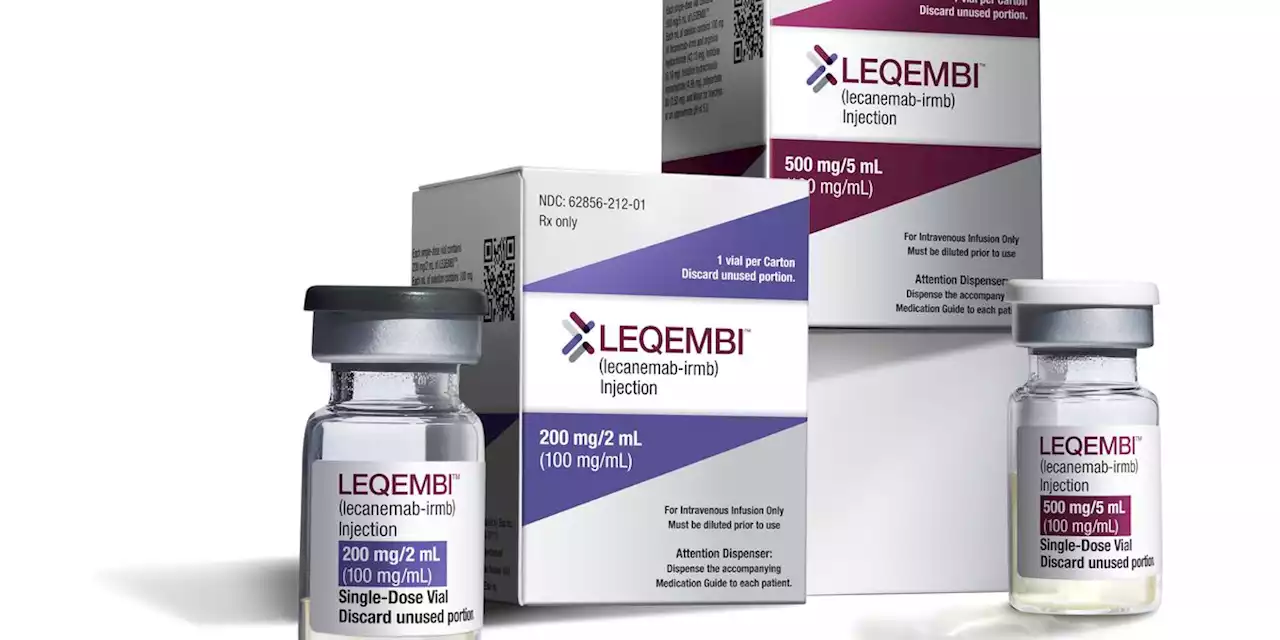Some private insurers are balking at paying for the first drug fully approved to slow mental decline in Alzheimer’s patients.
The U.S. Food and Drug Administration approved the IV drug for patients with mild dementia and other symptoms caused by early Alzheimer’s. in which the drug slowed memory and thinking decline by about five months in those who got the treatment compared with those who got a dummy drug. Some Alzheimer’s experts say the delay is likely too subtle for patients or their families to notice.
“That’s why we’re just dumbfounded that commercial plans are not covering it,” said Christine Mann, chief operating officer of the Buffalo, N.Y.-area Dent Neurologic Institute, which will provide the IV drug to patients. “It’s almost like discrimination against these patients.”Companies saying no so far include Highmark, which provides Blue Cross and Blue Shield coverage in New York, Pennsylvania, Delaware and West Virginia; Blue Cross and Blue Shield of North Carolina, which has about 1.
“That re-evaluation made it clear to us that the existing evidence does not allow for conclusions to be drawn about the safety and effectiveness of Leqembi,” said Dr. Heidi Syropoulos, a medical director with the insurer. Because Medicare covers the drug, patients with privately run Medicare Advantage plans will receive coverage, said Juliette Cubanski, of the non-profit KFF, which researches health care issues.Most insurers will probably cover the drug but heavily restrict its use through things like requiring pre-approval, said Greg Warren, a health actuary and member of the Society of Actuaries.
Chambers said they have found that the decision to not cover a drug largely happens when the evidence supporting the drug is considered questionable. Patients who don’t get coverage through a commercial plan may eventually receive it through Medicare or state- and federally funded Medicaid programs.
United States Latest News, United States Headlines
Similar News:You can also read news stories similar to this one that we have collected from other news sources.
 Insurers face challenges in covering obesity drugs despite promising dataNovo Nordisk's new data on the heart health benefits of obesity drugs is a positive development, but insurance coverage for these drugs remains limited. A recent survey shows that 69% of patients receiving obesity care services do not have insurance coverage for GLP-1 drugs, representing a significant decline in coverage since December 2022.
Insurers face challenges in covering obesity drugs despite promising dataNovo Nordisk's new data on the heart health benefits of obesity drugs is a positive development, but insurance coverage for these drugs remains limited. A recent survey shows that 69% of patients receiving obesity care services do not have insurance coverage for GLP-1 drugs, representing a significant decline in coverage since December 2022.
Read more »
 Rothman Orthopaedics’ decision to drop Medicare bundled payments shows why it’s so hard to slow rising health costsRothman Orthopaedic was among the early adopters of Medicare’s so-called bundled payments, but now it only has them with private insurers. It shows the challenges of altering a health-care payment system that has been built on the back of Medicare.
Rothman Orthopaedics’ decision to drop Medicare bundled payments shows why it’s so hard to slow rising health costsRothman Orthopaedic was among the early adopters of Medicare’s so-called bundled payments, but now it only has them with private insurers. It shows the challenges of altering a health-care payment system that has been built on the back of Medicare.
Read more »
 Severe storms cause $34 billion in insured losses in the USAccording to Swiss Re, severe storms have resulted in an unprecedented $34 billion in insured losses in the US this year. The insurance industry is facing disruptions due to the increasing frequency of extreme weather events, leading some insurers to retreat from states like Florida and California. Despite skyrocketing premiums, State Farm and Allstate have decided to no longer write new policies in California due to the rising wildfire risk and construction costs.
Severe storms cause $34 billion in insured losses in the USAccording to Swiss Re, severe storms have resulted in an unprecedented $34 billion in insured losses in the US this year. The insurance industry is facing disruptions due to the increasing frequency of extreme weather events, leading some insurers to retreat from states like Florida and California. Despite skyrocketing premiums, State Farm and Allstate have decided to no longer write new policies in California due to the rising wildfire risk and construction costs.
Read more »
 Aldine ISD first grader left alone to walk freely after first day of schoolDuring dismissal time at Aldine ISD’s Kujawa Elementary School on the district’s first day of school, a 6-year-old boy was left to wander the neighborhood near the school while his family frantically searched for him.
Aldine ISD first grader left alone to walk freely after first day of schoolDuring dismissal time at Aldine ISD’s Kujawa Elementary School on the district’s first day of school, a 6-year-old boy was left to wander the neighborhood near the school while his family frantically searched for him.
Read more »
 World’s ‘original supermodels’ reunite for first Vogue cover together in 33 yearsThe quartet of catwalk queens — long considered the world’s original supermodels — grace the coveted cover of the fashion bible’s September issue.
World’s ‘original supermodels’ reunite for first Vogue cover together in 33 yearsThe quartet of catwalk queens — long considered the world’s original supermodels — grace the coveted cover of the fashion bible’s September issue.
Read more »
